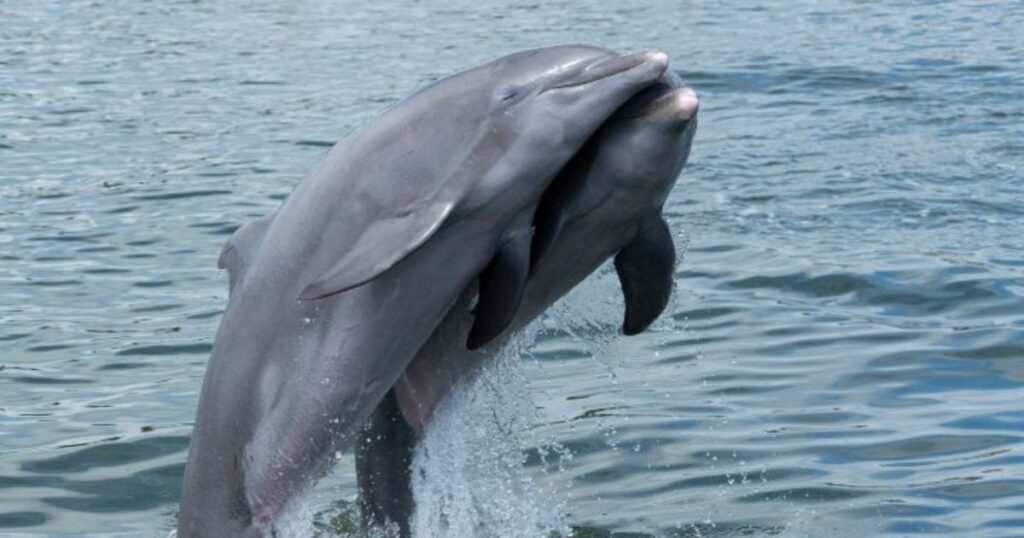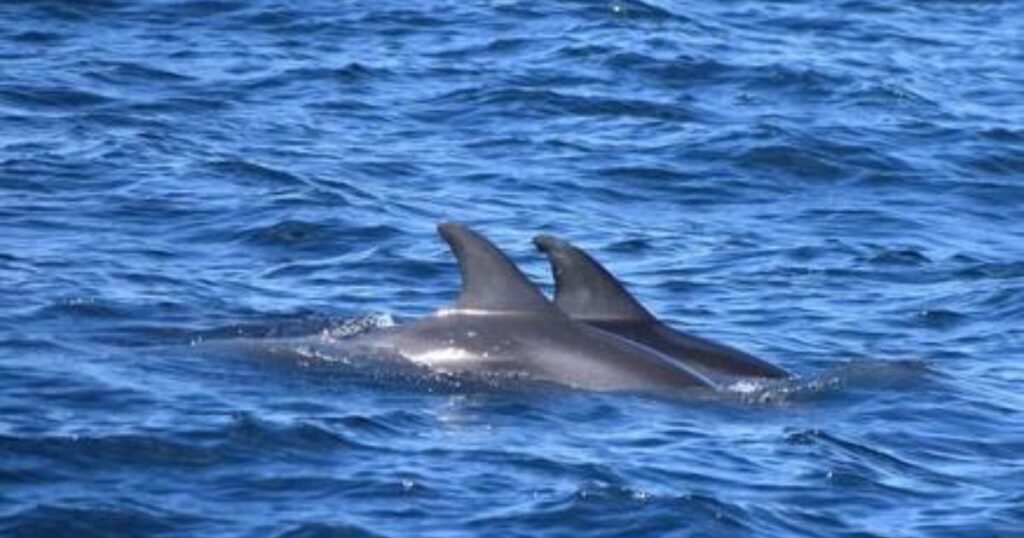Last updated on March 21st, 2024 at 01:23 pm

Can Dolphins Have Twins? Dolphins typically give birth to a single calf, and twinning is extremely rare among them.
Dolphins are amazing aquatic mammals that are well-known for their social behavior and intellect.
Although a great deal of research has been done on many areas of dolphin reproduction, twin births are still an uncommon event.
We examine the biology of dolphin reproduction and the variables influencing the uncommonness of dolphin twins in this blog article.
Table of Contents
Comprehending Dolphin Reproduction
As mammals, dolphins give birth to live offspring, just like other cetaceans. Depending on the species, dolphins usually give birth between 10 and 12 months of gestation.
In rare instances, female dolphins typically give birth to a single calf. [Can Dolphins Have Twins?]
The Rarity of Dolphin Twins: Can Dolphins Have Twins?
Dolphin twinning is exceedingly uncommon compared to other mammalian species such as cattle or humans where it is common. Few examples have been reported, which is indicative of how uncommon multiple births are among marine animals.
This scarcity is caused by a complex interaction between ecological and biological factors. Since dolphins normally only ovulate once throughout a reproductive cycle, the likelihood of twin pregnancies is decreased.
Furthermore, the ability of dolphins to successfully gestate multiple embryos may be hampered by the anatomical constraints of their reproductive systems.
Dolphin’s twin rarity is further enhanced by ecological factors like scarce resources and environmental pressures.
Comprehending these complex elements illuminates the distinct reproduction mechanisms of these intriguing marine organisms.

Biological Factors
Dolphin twins are extremely rare due to a variety of biological reasons. During ovulation, female dolphins usually release a single egg, decreasing the possibility of multiple pregnancies.
Twin pregnancies are also unlikely because of the structure of dolphins’ reproductive systems, which may not be able to support multiple fetuses at once.
Ecological Factors
A number of ecological stresses may have an impact on the success of reproduction in dolphin populations.
Dolphin health and reproductive capacity can be affected by a variety of factors, including scarcity of supplies, predation, and environmental stressors.
Twin pregnancies that are successful may be much less common in settings with limited resources or intense rivalry.
Documented Cases
Dolphin twins are extremely uncommon, however they have been reported both in the wild and in captivity.
Researchers and fans of marine mammals are typically quite interested in and excited about these occurrences.
Analyzing these unusual occurrences sheds light on dolphin reproduction and the variables affecting marine animal twinning.
Frequently Asked Questions (FAQs): Can Dolphins Have Twins?
How often do dolphins give birth to twins?
Dolphin twins are incredibly uncommon; there are very few known instances of dolphin twins. Although twin births have been reported in certain dolphin species, this is not a regular occurrence in the wild.
What elements play a part in dolphin twin rarity?
Numerous variables, including biological constraints like ovulation rhythms and reproductive architecture, contribute to the rarity of dolphin twins. Dolphins are less likely to have twin pregnancies due to ecological variables like finite resources and environmental pressures.
Are there any documented cases of dolphin twins?
Indeed, twin dolphins have been observed in both the wild and in captivity. Despite being uncommon, these events offer important insights into dolphin reproduction and the variables affecting marine animal twinning.
Conclusion: Can Dolphins Have Twins?
Dolphin twins are still an uncommon and amazing phenomenon in the field of marine mammalogy.
Although dolphin twin births are uncommon due to biological and ecological variables, recorded ones provide important opportunities for scientific research and learning.
Researchers may learn more about the variables driving twinning in these amazing animals as they continue to examine dolphin behavior and reproduction.

Mr. Das, a certified pharmaceutical scientist, holds a Bachelor of Science in Pharmaceutical Sciences and passionately contributes to dolphin conservation as a member of the committee in Bangladesh.


